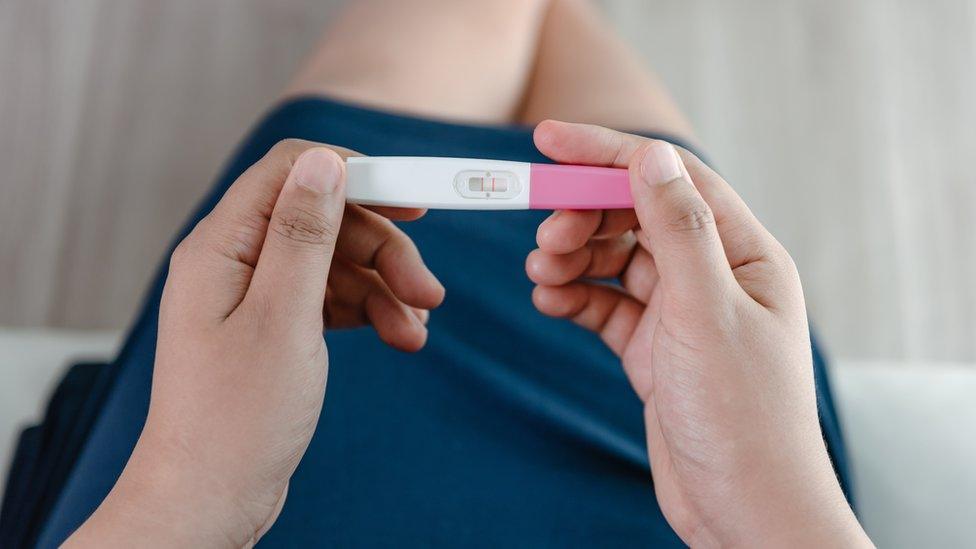US group to fight Scotland's abortion buffer zones
- Published
40 Days for Life is already active outside clinics and hospitals in Scotland
A US anti-abortion campaign group has said it will help mount a legal challenge if a law to implement buffer zones is passed in Scotland.
Texas-based 40 Days for Life is already active outside clinics and hospitals in Scotland.
The group's volunteers carry out what they term "vigils" but others claim the protests intimidate vulnerable women.
First Minister Nicola Sturgeon said those who oppose abortion should do so outside parliament, not hospitals.
She told the BBC Scotland Disclosure programme - The Abortion Front Line she was determined to do everything she could to resist US anti-abortion groups intervening in Scottish laws.
The first minister pledged in June that the Scottish government would back a member's bill which would see 150-metre no-go areas placed outside health facilities so women could access services without fear, harassment or intimidation.
The measure would not be without precedent in the UK.
Ealing Council in London implemented a buffer zone around clinics in 2018.
Northern Ireland has passed its own buffer zones legislation but the Supreme Court has been asked to consider if the bill is proportionate with the right-to-protest.
Ms Sturgeon acknowledged that there would be complexities around making Scottish legislation stand up to legal scrutiny.
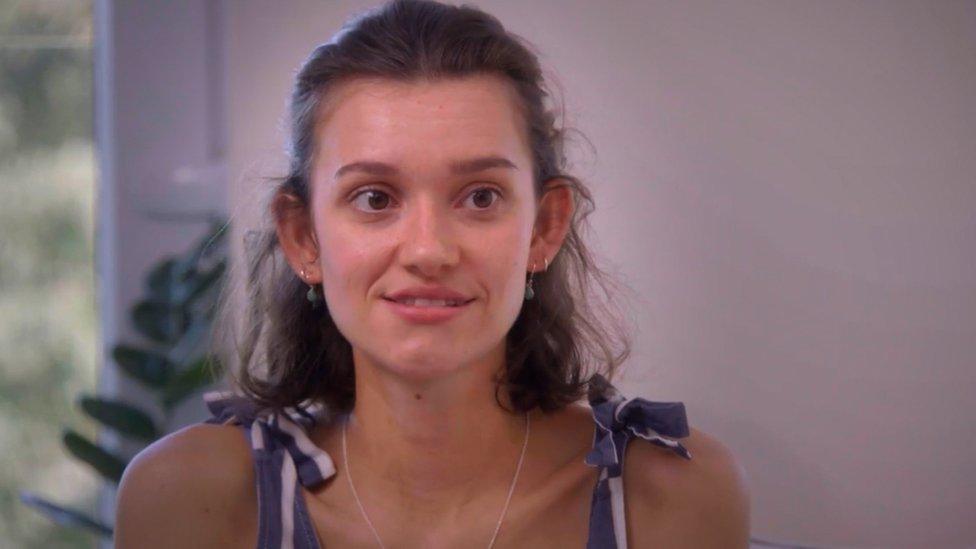
Junior doctor Alex Hague said she could not believe what she was seeing
The Queen Elizabeth University Hospital in Glasgow is one of the sites which has seen vigils staged by anti-abortion campaigners.
Alex Hague was working as a junior doctor there last year when she first noticed the protests.
She said she could not believe what she was seeing.
"At times I witnessed them just standing with signs," she said. "Some of them were just pictures of foetuses in the womb.
"I remember one, it clearly just said 'this is murder'.
"I just couldn't believe they were allowed to stand essentially outside my place of work and outside a maternity hospital.
"It always made me feel very uneasy and, at times, really angry."
Dr Hague said she had an abortion at the age of 21 and, although she struggled with making the decision, she has never questioned whether it was the right one for her.
"Seeing all this, it definitely brought up a lot of feelings and made my life as a doctor there much harder."
She added: "It's a medical service that these people are trying to reach and it is so inappropriate that anyone would be allowed to stand outside that service.
"I understand everyone has free speech but you are in the wrong place entirely."
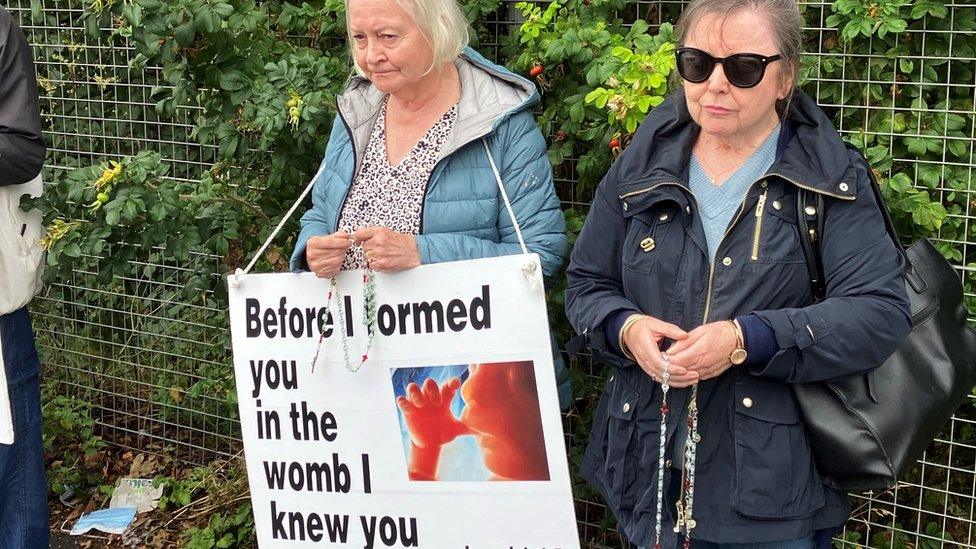
Some campaigners have placards with pictures of foetuses
Ms Sturgeon told the BBC her own personal experience was not of abortion but she said having a miscarriage was one of the most upsetting and traumatic times of her life.
She said it would have been even worse if she had been made to walk past images of foetuses on placards before or after going to hospital.
"That's the only personal experience I can bring to bear but that brings me some insight into how deeply distressing that must be, not just for women accessing abortion services, but women accessing a whole range of different services," she said.
The 40 Days for Life group, which operates in more than 60 countries, describes itself as the "world's largest grassroots movement to end abortion".
Its next round-the-clock 40-day vigil in Scotland begins outside Edinburgh's Chalmers Street clinic on Wednesday.

40 days for Life CEO Shawn Carney rejects accusations its volunteers intimidate women
CEO Shawn Carney rejects accusations its volunteers intimidate women.
"There are stereotypes that people go out and wave Bibles at women and tell them they're going to burn in hell and, that's not what we do," he said.
"Ours is very peaceful, it's very law-abiding. It's very quiet.
"People can reach out to the women, the women often reach out to us."
Outside Glasgow's Sandyford Clinic, there's a different approach.
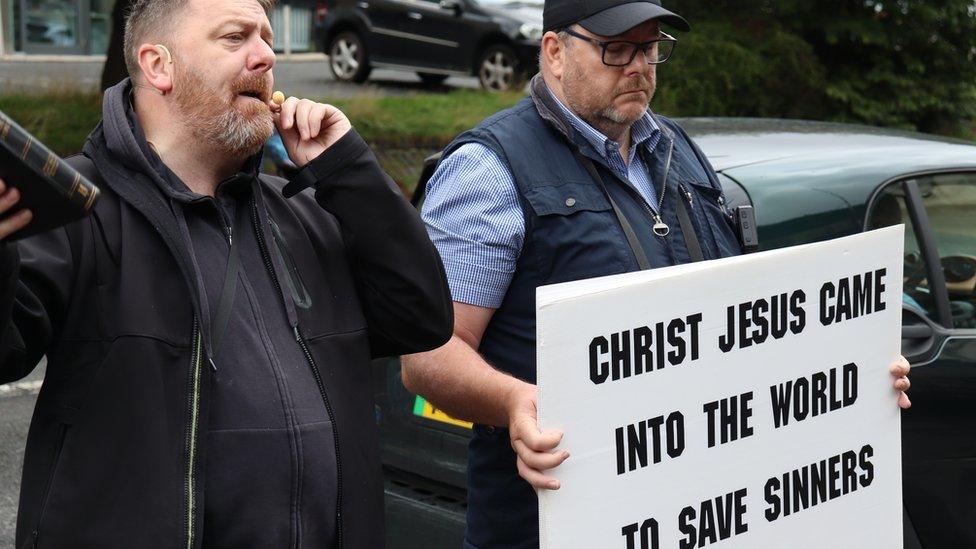
Pastor Angus Cameron and Ross Duncan regularly attend the Sandyford Clinic in Glasgow
Pastor Angus Cameron and Ross Duncan regularly attend to express their anti-abortion beliefs using microphones.
They said they were there because they saw "unborn babies as the voiceless".
Such gatherings, which some say have been galvanised by the recent overturning of Roe v Wade in the US, have led to calls for buffer zones to be introduced.
Pro-choice campaigners Back Off Scotland said a ban on anti-abortion presences within 150m of clinics and hospitals would allow women safe access.

Scottish Green MSP Gillian Mackay has proposed a buffer zone bill
Scottish Green MSP Gillian Mackay has consulted on proposals for a members' bill that would see buffer zones introduced in Scotland.
The Scottish government has indicated its support but the first minister is keen to see the outcome of the Supreme Court's deliberations on the Northern Ireland legislation.
Meanwhile, anti-abortion groups argue the move would impact on freedom of speech, and prevent volunteers from offering support to women.
When asked if 40 Days for Life would back a legal challenge against legislation to implement buffer zones in Scotland, Shawn Carney said: "We're prepared to do a lot, legally and peacefully.
"So yes, we would be prepared to take the appropriate steps, and I am telling you, there are many allies with us on this.
"They don't agree with us on abortion but there are many people in organisations throughout the UK that think it's absolutely shameful that we're being targeted."
Ms Sturgeon said she was not surprised that US-based anti-abortion groups would want to intervene in Scottish laws.
"Remember for a lot of these US campaign groups on abortion it's the tip of the iceberg," she said.
"Am I surprised that they want to try and export that to other countries and to stir up the same sort of opposition to women's rights?
"No, I am not, but I am pretty determined that I will do everything I can to resist it."
- Published30 May 2022
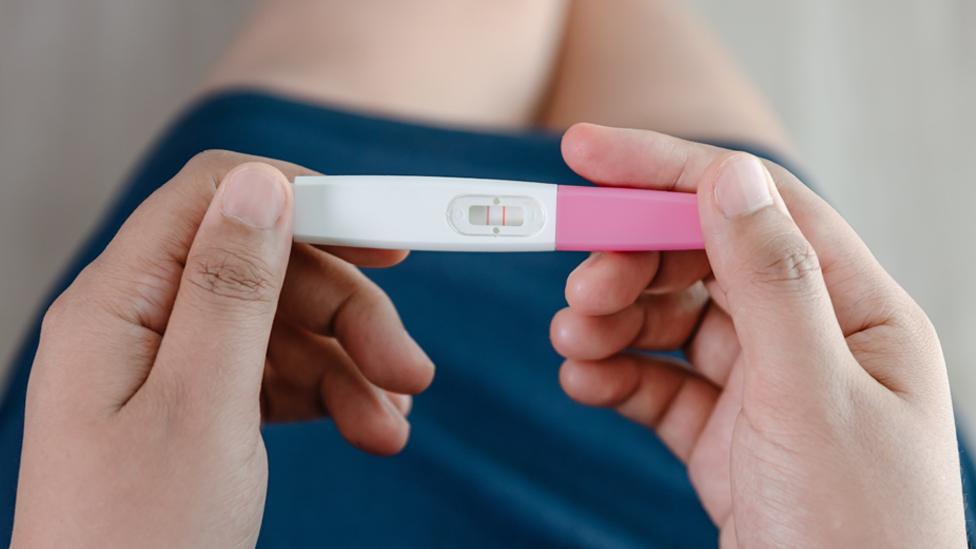
- Published19 July 2022
